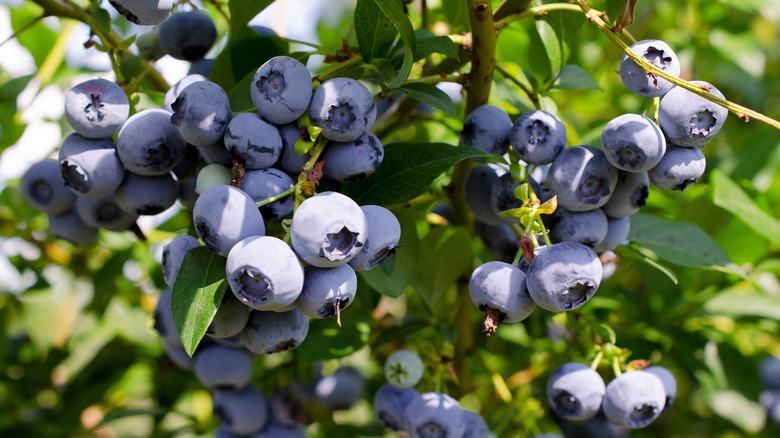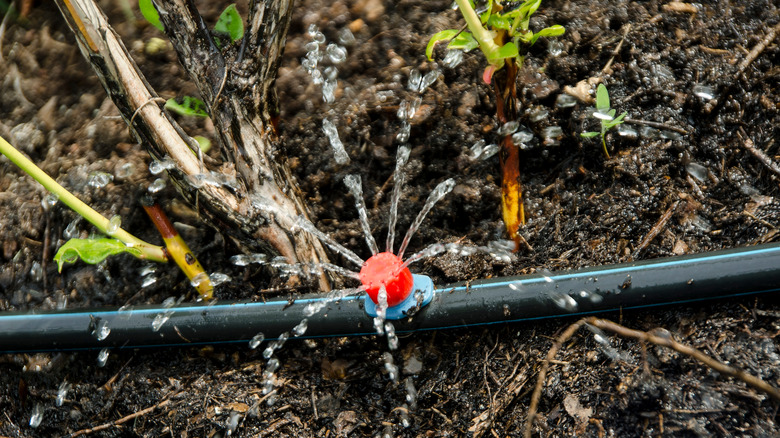Can Vinegar Really Help Your Blueberry Bushes Flourish?
Do you have a dying blueberry plant in your garden that you'd love to revive? These berry-producing bushes make ideal additions to a yard, however, they come with their own challenges. A test kit can be useful for checking if the soil lacks certain nutrients, and commercial plant food can help replenish those areas. However, if you're adequately watering and caring for your blueberry plant throughout the growing season but it remains unhealthy, it may be due to the type of soil you have. Blueberries grown in the ground require acidic soil. If they are grown in pots, you should opt for ericaceous potting compost instead, which is specifically formulated for plants that thrive in an acidic environment.
In nature, the organic matter and minerals in the soil, which are naturally acidic, break down slowly to create an acidic soil. Natural bacteria and fungi thrive in an environment rich in organic matter and release minerals and ammonia back into the soil. The blueberry bush's roots then absorb these nutrients. Without acidity, this natural process does not occur, and your blueberries won't thrive. This is where vinegar comes in. Vinegar can increase the acidity in the soil to the level required by your blueberry bushes.
Why vinegar helps blueberries thrive
The theory behind using vinegar to raise soil acidity and lower soil pH for the benefit of blueberries is that vinegar contains acetic acid. This acid helps break down bacteria and release hydrogen ions, which react with minerals in the soil, increasing acidity. However, it's important to note that vinegar's benefits may be short-lived, especially during heavy rainfall, as it can be washed away. There is also a divided opinion on whether vinegar has a measurable impact at all.
Sulfur is another material that can acidify soil. Soil organisms convert sulfur into sulfuric acid, gradually acidifying the soil. This process can take weeks to months, depending on the temperature. This is why vinegar is considered a quick-fix solution. An alternative method to acidify soil is to add a solution of 2 tablespoons of lemon juice to a gallon of water and apply it directly to the soil once a month. Additionally, using rainwater instead of alkaline tap water for watering plants can gradually raise the pH level of the soil over time.
How to grow blueberries in your garden using vinegar
You can purchase specially formulated products to increase the acidity of the soil for your blueberries. However, vinegar is a cheap and readily available household product that can serve as a good starting point. If you already have vinegar in your cupboard, you can use it right away to quickly acidify the soil and lower its pH.
To create the solution, simply mix 1 to 4 tablespoons of vinegar per gallon of water. Adjust the amount of vinegar based on the size of your blueberry bush. If you are unsure, it is better to use less vinegar, as using too much can potentially harm the plant's roots. Apply this solution to the soil. Keep in mind that white vinegar is generally more potent than apple cider vinegar, so you should use less of it.
This method is effective if your blueberry bush needs a quick fix and you want to see fast results. The vinegar works rapidly to alter the soil's pH. If you prefer a slower process to reduce the risk of root burn, you can incorporate perlite or vermiculite into the soil. These materials will absorb and retain the vinegar solution, gradually releasing it into the soil for the plant roots to absorb. If both options are available, vermiculite is recommended as it is better at retaining moisture, while perlite is more effective for aerating compost in potted plants.


